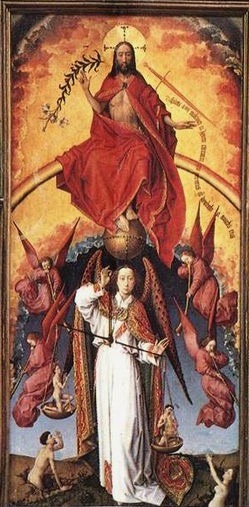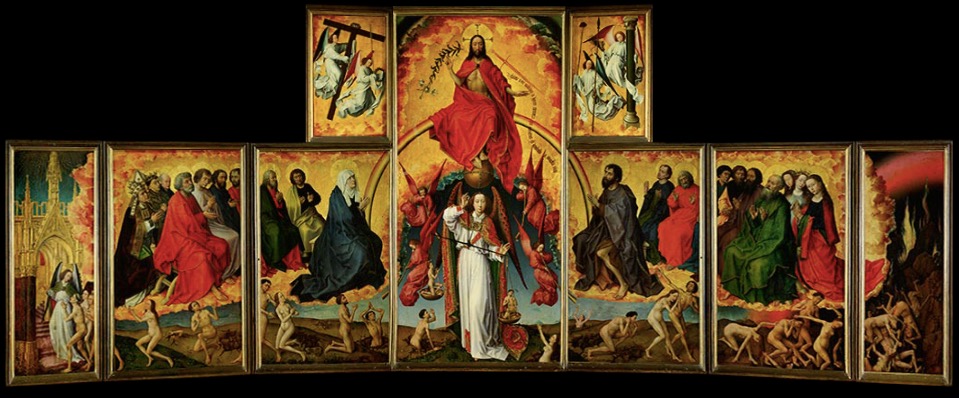There are certain Christians utterly fascinated with – sometimes all but eager about – the end of the world. In the past, they’ve almost always been confined to the wilder reaches of Protestantism, though they also pop up these days in various Catholic circles. The world, to be sure, will someday come to an end. But since we have it on the Highest Authority that “concerning that day or that hour, no one knows, not even the angels in heaven, nor the Son, but only the Father,” (Mk. 13:32), it’s always seemed better to me to spend our short time here on earth on other things.
Yet for obvious reasons – 2020 has months to go, and has already given us plagues, fires, wars and rumors of wars, storms, riots, looting, mayhem, stories of corruption in Rome itself, and political upheavals that remind you of the great Beasts in the Apocalypse (chs.13 to 17ff.) – people, with some justification, start raising the old question: Is this finally it?
Which is why I’ve been reading the Book of Revelation and related works (at least in my mind) with students at Thomas More College this semester. As we’ve mentioned here before, I was asked to be the first St. John Henry Newman visiting chair there this year – thanks to a generous grant by an anonymous donor – and my initial thought was: If people are speculating about the End Times anyway, why not study what Scripture actually has to say in the book that is the culmination of the whole Biblical account that began in Genesis?
Revelation is not an easy text to read and unless someone knowledgeable is taking you through it, I’d recommend a commentary. My own favorite is Joseph L. Mangina’s in the Brazos series of theological commentaries, overseen by our friend R. R. Reno, editor of First Things.
But St. John, author of the Apocalypse, says it is to be read aloud in all the churches. And in some of the very last verses of the Bible he warns, “if anyone takes away from the words of the book of this prophecy, God will take away his share in the tree of life and in the holy city, which are described in this book.”
I’ve learned two large things wrestling with the text:
- The progressive idea that we can “build the Kingdom of God” here on earth is false, and will be shown to be false, by the disasters human and superhuman that will intervene between now and the end;
- And some of the political dreams of peace and brotherhood are delusions that ignore the “war in heaven,” the clash of spiritual powers, “principalities and powers,” of which earthly disorders are secondary effects.

We still have to seek and to work for the good in this life, of course. But it’s only the Lamb who can conquer such evil spirits and will show Himself to have conquered them in a fully open way someday.
In our course, we’ve also been looking at such things through the lens of various literary works. In his novel The Plague, for instance, Albert Camus lets the Christian notion of the mystery of evil (Augustine’s mysterium iniquitatis) beyond human reckoning and the non-Christian view of evil as a meaningless scourge of humanity play out among various characters during a period of pestilence in his native Algeria. Though there’s no easy answer to what it all means – just as it’s hard to sort out the good and evil in our COVID-19 age – you can’t finish that book without seeing that there’s something far deeper in human suffering and death than a superficial medical view might suggest.
We just finished an even more disturbing novel, Robert Hugh Benson’s Lord of the World, a fictional account of the final apocalypse. Benson was a convert – the son of an archbishop of Canterbury, in fact, and his book is too good to spoil by revealing details. Suffice to say that it lays out how the final conflict will be between a “religion of humanity,” which imposes itself via mysterious supernatural forces, preaches peace and universal human brotherhood, but doesn’t mind using coercion and genocidal violence to eliminate the only real opposition to its dominance, the Catholic Church.
As I’ve mentioned here before, Pope Francis has recommended the book, sometimes, I suspect, because the charismatic leader of Benson’s new “religion of humanity” is from the United States. I only wish the pope were as wary about the ways that his friends in the UN, EU, environmental and ecumenical groups have traits that resemble the false messiah in Benson.
We’ve taken excursions this semester into other works warning about the dangers of humanistic utopias: St. Thomas More’s classic Utopia, Bacon’s New Atlantis, Hawthorne’s Blithedale Romance, the last a study of how our old human nature persists even in socialist enclaves that believe they’ve left all that behind. My colleague Amy Fahey took the students through Mary Shelley’s Frankenstein, a reminder that even our pursuit of scientific knowledge may produce monsters.
It’s only mid-semester and I’ve already learned a lot teaching these texts, not least how important it is that institutions like TMC exist. I couldn’t teach what I’m teaching in most universities these days, even the Catholic ones.
That’s a problem that goes far beyond educational institutions. We have far too many people in public life with the intellectual innocence of an undergraduate along with that age’s misplaced confidence of knowing what perfect justice is and how to obtain it.
So it’s refreshing to have students who want to learn and are interested in real subjects like Scripture, literature, Greek, math, history, science, instead of “race, class, and gender” – let alone their own “identity.” If we produce a larger crop of young people truly well-formed in mind, heart, and spirit, we may just get through the near future and – who knows? – maybe the Apocalypse will then hold off, for a while.
*Image: The Last Judgment (detail from the Beaune Altarpiece) by Rogier van der Weyden, c. 1445-50 [Hôtel-Dieu Museum, Beaune, France]. The whole altarpiece is below:
















